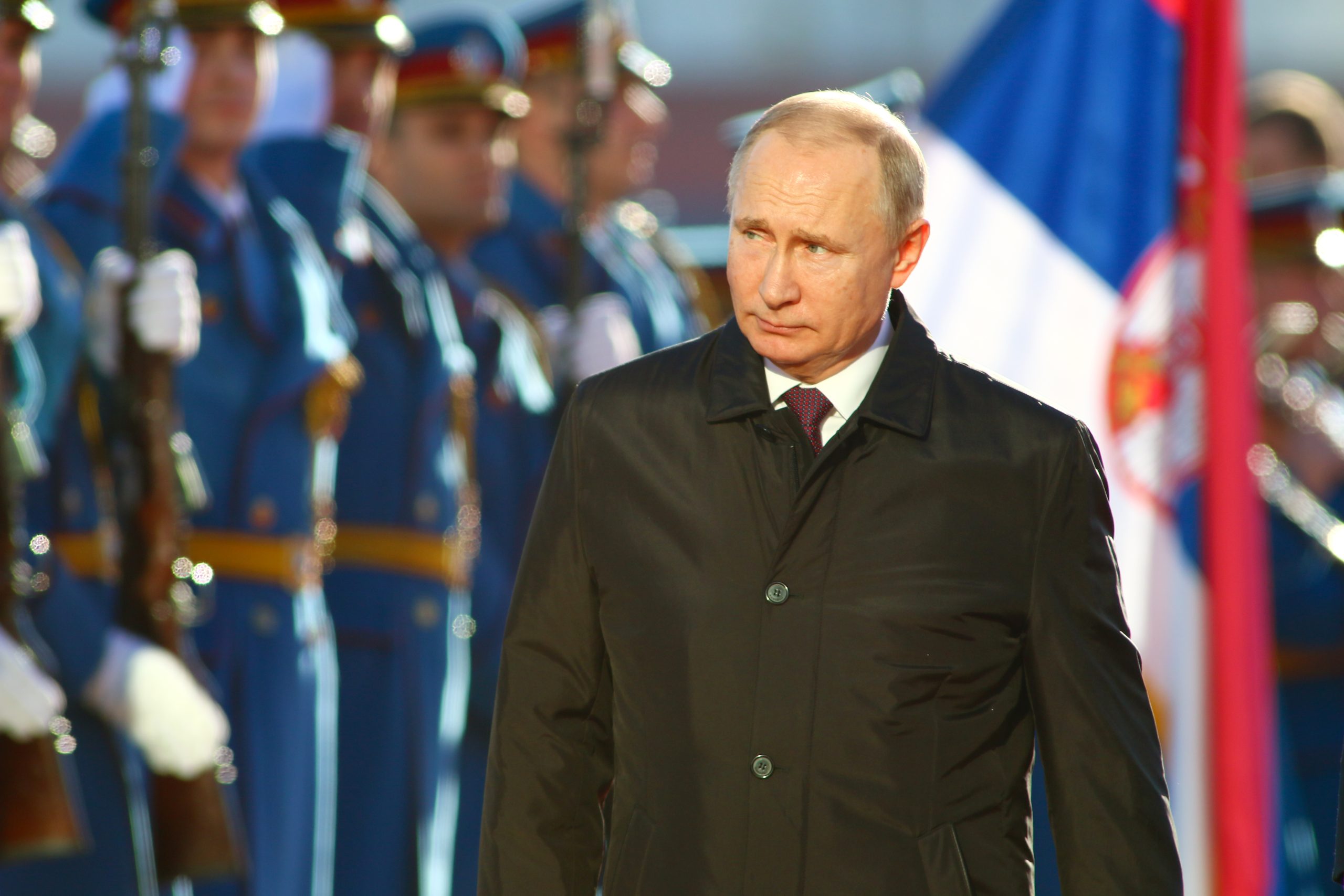The Wagner Group’s rebellion against the Russian government ended in failure, but has it done lasting damage to Vladimir Putin? James Hughes writes that while the rebellion itself has not weakened Putin’s regime, it will exacerbate fears within Putin’s circle of the potential for military failure in Ukraine to generate a wholescale crisis.
The commentary from western governments and mass media on the consequences of the failed Wagner rebellion in Russia focuses on the weakening of Putin’s grip on power. This is a continuation of the wishful thinking that has characterised the analysis of the war in Ukraine itself.
The recent events raised hopes that they might lead to the toppling of the Putin regime, which might then engineer a positive turn in the war in Ukraine’s favour. It is interesting that Putin himself in his statement on the rebellion, drew a comparison with the events of 1917 in Russia, when the February and October Revolutions accelerated a collapse of the Russian Army on the Eastern Front.
That was the only significantly obvious sign of weakness on Putin’s part during the two-day rebellion, and this comparison encapsulates a broader fear within the Putin elite about the possible consequences for the regime of a lack of success or even defeat in the war in Ukraine. Why, then, did the rebellion fail, and how much of a threat did it pose to the regime?
The rebellion, as such, was primarily a spontaneous outpouring of personal hatred. As such it was poorly prepared, badly organised, and had no chance of success. No senior Russian military commander joined the rebellion, only a handful of regular army units expressed open support, while Russia’s political elite rushed to articulate publicly their loyalty to Putin. The Russian defensive line in Ukraine remained solid.
The rebellion was very much the product of personality clashes and infighting within a certain section of the Putin elite that is managing the war. While much attention and commentary has focused on Yevgeny Prigozhin, the chief of the Private Military Company Wagner, the rebellion leader, much less has been articulated as to his motivations. This was not a “coup” against Putin. The target for Prigozhin’s wrath was the two men that Putin has encharged with commanding the Russian war effort in Ukraine: Sergei Shoigu, the Minister of Defence, and Valery Gerasimov, the Chief of the General Staff and Deputy Minister of Defence.
All three are long-standing Putin cronies.Putin has the closest personal relationship with Prigozhin, tracking back to the mid-1990s in St Petersburg when both were forging careers amidst the brutal realities of post-Soviet Russia.Shoigu came within Putin’s circle in the latter stages of the Yeltsin era, when Putin was prime minister and Shoigu was Minister for Emergencies. Shoigu became firmly embedded as a Putin loyalist after the election of Putin as President in 2000. Gerasimov’s star rose within the army as a result of his unwavering fulfilment of Putin’s orders to crush the Chechen insurgency in the early 2000s.
The problem for Putin is that the quagmire war in Ukraine developed and accentuated personal ambitions, rivalries and hatreds between these three key players. Prigozhin is derisory about what he sees as the mismanagement of the war, and focuses his discontent on ad hominem attacks on Shoigu and Gerasimov. He refers to Shoigu as the “Tyvan” (Tuvan), highlighting the ethnic slur and Russian nationalism of Prigozhin’s political instincts, whereas he dismisses Gerasimov as “Gerasim”, the deaf and dumb stubborn peasant character from Turgenev’s short story Mumu.
However, during the rebellion blood was spilt. Wagner columns were bombed from the air, and there were armed clashes with state forces in Voronezh. Potentially greater bloodshed involving Kadyrov’s “Akhmat” force and Wagner in Rostov was avoided by Prigozhin’s ending of the rebellion as spontaneously as he had initiated it. What then might the consequences be for the regime and for the war?
Two main consequences follow. First, the rebellion did not weaken the regime as such but rather will have served more to exacerbate the fear within Putin’s circle of the potential for military failure in Ukraine to generate a wholescale regime crisis.Prigozhin and Wagner’s popularity as heroes within Russian society for their perceived military successes in the war, means that Putin will have to tread carefully on how he manages the relationship with them post-rebellion.Prigozhin also taps into Russian popular sentiment that holds that the war is being mismanaged by incompetent leaders, and that Russia is not unleashing its full military might against Ukraine to bring the war to a close.
Secondly, Putin will also have to tread carefully in deciding whether to address these populist sentiments. His cronies, Shoigu and Gerasimov, could be moved on to retirement in due course no doubt with much fanfare about how successfully they performed. Replacing these loyalists like for like will not be easy for Putin. Putin may well now also consider it necessary to escalate the war to address the claims that the regime is waging it in too moderate a fashion. The conundrum for Putin is how to bring the war in Ukraine to successful closure without facilitating the rise of an authentic Bonaparte who could better prepare, organise and mobilise a rebellion.

